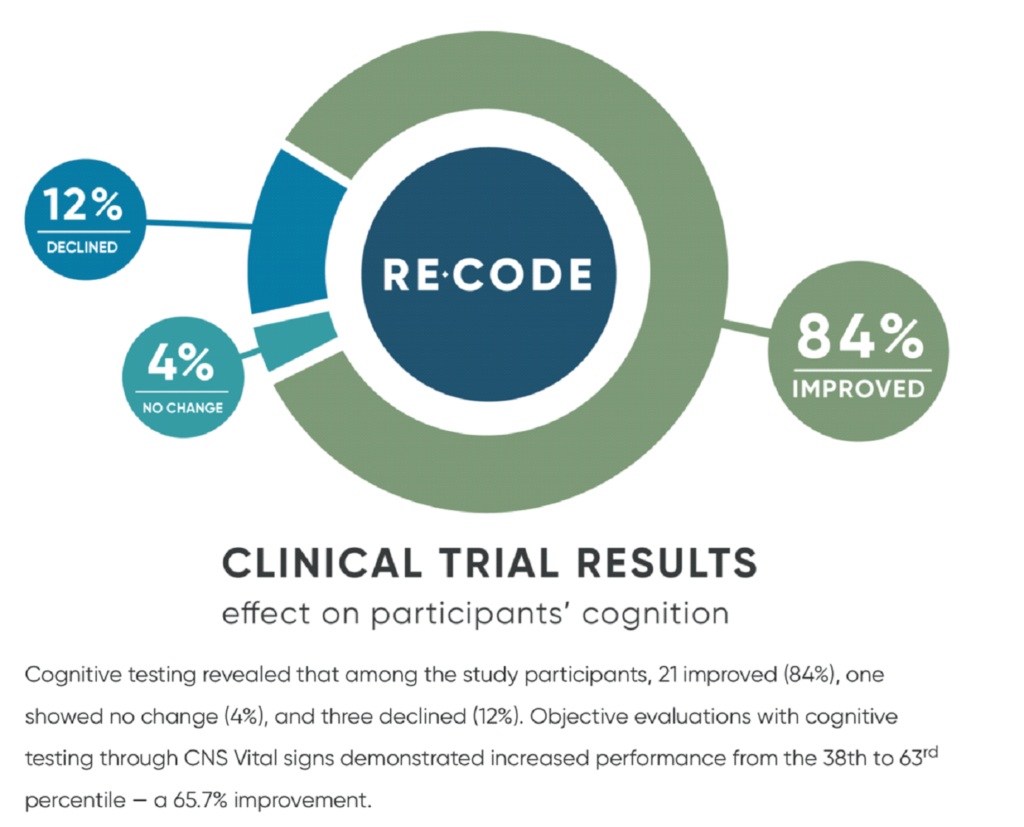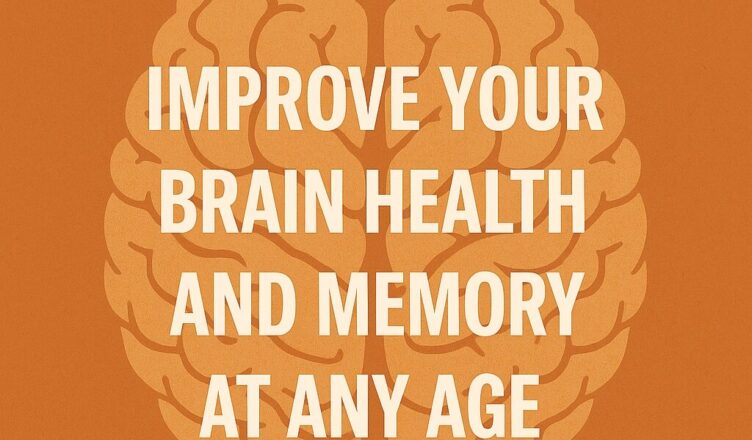By, Lindsey Byrne, The Cognitive Health Coach
What did I come in here for again?
Are you noticing any changes to your memory? Maybe just walking into a room and wondering what you came in for? But that’s normal, isn’t it? Well, that depends on how often it’s happening. We all expect to notice some slowing down as we age, but don’t we all know people in their 90’s or even at 100 who are as sharp as a tack? So, what can we do to sharpen up and stave off any decline?
Surely there’s nothing that can be done?
Many doctors in the US are working on dementia prevention and even reversing the symptoms of cognitive decline.

Here are the results of a small proof of concept study conducted by Dr. Dale Bredesen et al., using lifestyle medicine and root cause analysis to address the specific causes found for each participant. Click here for more information about the trial and its results.
Of course, this was a small trial and more needs to be done. In fact, Dr. Bredesen is currently conducting a 72-person trial across 6 different sites across the US, so we await the results of that with anticipation!
What increases our risk for poor cognitive health?
Have you noticed an increase in all chronic conditions over the past few decades? According to the Lancet, cases of dementia are set to triple by 20501, but this is not all, cancer is now predicted to affect almost 1 in every 2 people2 , auto immune conditions*3 are growing at alarming rates and many other chronic conditions are also on the rise. What do you think might be causing all this?
Of course, we live longer nowadays, but many of these conditions are growing faster in younger groups, so the aging population can’t be the sole cause.
According to Dr. Bredesen there are many root causes, but he categorises these into 6 main types:
⦁ Atrophic – the brain not getting the nutrients it needs (hormones, nutrition & gut health)
⦁ Glycotoxic (blood sugar/insulin resistance)
⦁ Inflammation
⦁ Toxins
⦁ In our food, the air, mould, in personal and homecare products, plastics, non-stick, etc. and/or from an impaired ability to detox due to genetic predispositions
⦁ Vascular health
⦁ Trauma
all of which have specific recommendations for improvement.
So, what can I do to protect my brain health and memory?
The Lancet published a research paper showing that 45% of dementias can be avoided with just 14 simple lifestyle changes:
- Quality of education in early life
- Social isolation
- Air pollution
- Traumatic brain injury
- Hearing loss
- Depression
- High blood pressure
- Diabetes
- Obesity
- Physical inactivity
- Smoking
- Excessive alcohol consumption
- Uncorrected vision loss
- High cholesterol
Some of these might seem obvious, but that doesn’t make them all easy to achieve. Consider working with a certified health coach*5 to find the best way for you to make tiny changes to your existing habits to have an impact; start the process, start to feel a little better until you have more time, focus, energy and motivation to take the next step.
Some of them might feel completely outside your control, but if you can minimise your exposure, every little helps.
Actually, all these are pretty generic. What if you could test and find your own specific risk factors, then what would you be able to achieve?
But if you’re just looking to “do it yourself” and keep your brain health, there are 7 main areas of lifestyle that you can optimise to ensure you are protecting your brain health.
We’ll be looking at each of these factors in turn, in separate articles over the next few months, so watch this space for more tips and suggestions for you to work on.
What’s one thing I can do right now?
For this article we’ll be addressing no. 1 of 14 in the Lancet study; Quality of early life education.
That seems like a fait accompli, but nothing could be further from the truth. There is the concept of Cognitive Reserve*6, exercising your brain builds the “muscle” and delays decline. How much you challenge your brain has a big impact on continuing cognitive function; use it or lose it!
Whilst we can’t go back in time and alter our early life education, it’s never too late to start building your cognitive reserve.
If you’re thinking, “that’s fine, I’m a master at the Times Crossword!”, that is just not going to be good enough. If you’re good at one thing, your brain knows how to do that one thing. The key here is to challenge your brain every day. If you’re good at word puzzles, try some number puzzles. If you’re good at maths, learn to play a musical instrument, learn to dance, learn a foreign language, whatever appeals to you. And do maintain or increase your social interaction, it is surprisingly challenging for the brain.
Not only are you listening and working to understand the words you’re also interpreting the non-verbal communication; tone, expression and body language. Then whatever you hear is also sparking ideas in your own mind, triggering memories and you’re formulating your response, for such a simple thing that we probably would never consider challenging, what a fantastic brain work-out! What will you choose to learn?
Lindsey Byrne is one of the first Re: CODE 2.0 Health Coaches in the UK, helping people to implement the Bredesen Protocol to improve brain health and memory and prevent dementia.





